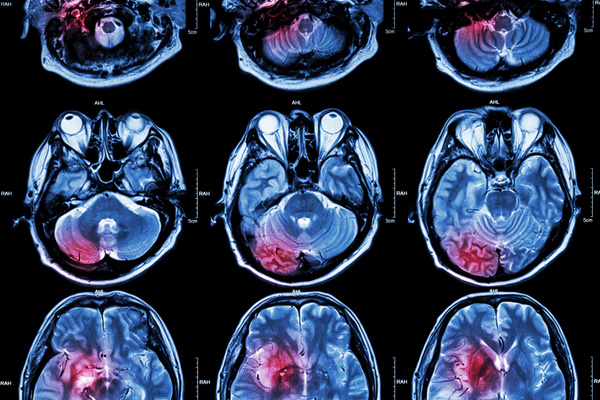A new study has found that preventing brain cancer cells from importing cholesterol from surrounding healthy cells, induces tumor cell death and regression. The research – which was conducted by academics at the University of California (UC) San Diego School of Medicine, Ludwig Institute for Cancer Research and The Scripps Research Institute, and published in the journal, Cancer Cell – found that this technique prolonged life in mouse models of the disease.
This study suggests a potential alternative treatment for the most common form of brain cancer, known as glioblastoma. As an aggressive form of the disease, glioblastoma tumors are very difficult to treat, resulting in a median patient survival rate of approximately 14 months.
Due in part to the selectively-permeable nature of the blood-brain barrier, adult brain cancers are predominantly fatal. Chemotherapies and other cancer treatments are often blocked from entering the central nervous system, thereby failing to reach the site of the brain tumor.
“Researchers have been thinking about ways to deal with this problem,” said Dr. Paul S. Mischel, senior study author and a member of the Ludwig Cancer Research branch at UC San Diego, and professor in the UC San Diego School of Medicine Department of Pathology. “We have been challenged by the fact that glioblastomas are among the most genomically-well characterized forms of cancer, with clear evidence of targetable driver oncogene mutations but this information has yet to benefit patients, at least in part, because the drugs designed to target these oncogenes have difficulty accessing their targets in the brain. We have been trying to find an alternative way to use this information to develop more effective treatments.”
Previous research has found that glioblastoma cells are incapable of synthesizing cholesterol, which is an important component in brain cell structure. With approximately 20 percent of the body’s total cholesterol found in the brain, glioblastomas get their cholesterol from highly-productive cells known as astrocytes.
While normal cells stop producing cholesterol after accumulating sufficient levels, glioblastomas ensure a continuous supply by suppressing the healthy cells’ mechanisms. Glioblastoma cells inhibit the production of oxysterols, a lipid which binds to the liver X receptor (LXR) in the nucleus to stop the production of cholesterol.
“So when normal cells get enough cholesterol, they stop making it, stop taking it up and start pumping it out,” said Mischel. “We found that in glioblastoma cells, this mechanism is completely disrupted. They’re like parasites of the brain’s normal cholesterol system. They steal cholesterol and don’t have an off switch. They just keep gobbling the stuff up.”
The researchers tested an experimental drug candidate – LXR-623 – which activates the LXR receptor, in mouse models. LXR-623 was able to pass through the blood-brain barrier and bind with the LXR receptor, stimulating the reduction of cholesterol. While healthy brain cells experienced no adverse effects from the drug, cholesterol-starved glioblastoma cells died and the tumor regressed.
“Disrupting cholesterol import by glioblastoma cells caused dramatic cancer cell death and shrank tumors significantly, prolonging the survival of the mice,” said Mischel. “The strategy worked with every single glioblastoma tumor we looked at, and even on other types of tumors that had metastasized to the brain. LXR-623 also had minimal effect on astrocytes or other tissues of the body.”












Join or login to leave a comment
JOIN LOGIN